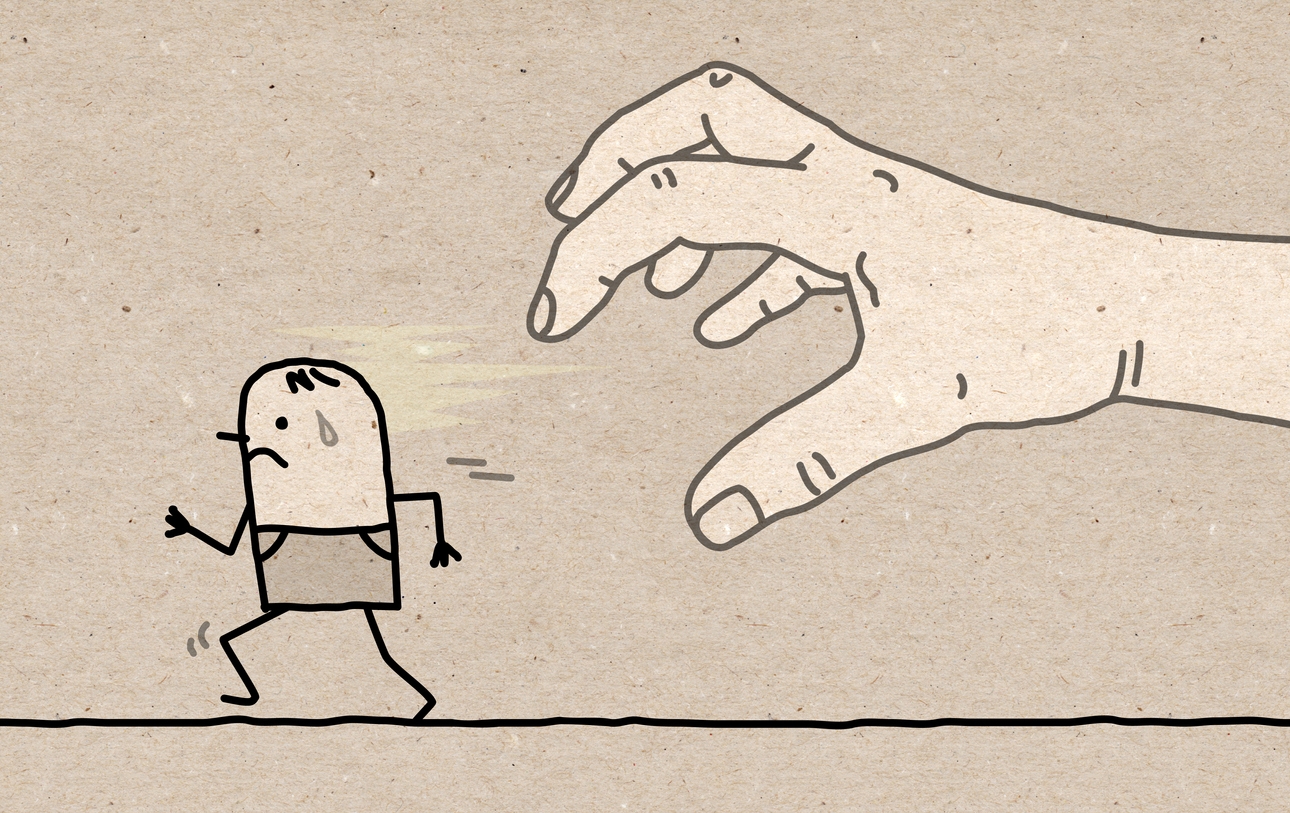You may have had an experience where you’re about to present a paper in class or perform in front of a group of peers, and suddenly your heart starts pounding and your voice seems to evaporate. Maybe you begin to sweat and your hands shake a little. That sense of overwhelming nervousness can be paralyzing. You might even think you’re having a panic attack.
But actually, the odds of you having a panic attack are slim: Only about two percent of Americans experience clinical panic disorder, a psychiatric condition more common in people older than age 20 than it is among teens, according to the Anxiety and Depression Association of America. And while “panicking” is a pretty common feeling in situations that require performing in public, for those who experience clinical attacks it can be debilitating. Panic attacks can leave people dizzy and disoriented, gasping for breath, and feeling their heart rate race as if they are running all-out sprints in gym class. (Then again, they may just induce a mild feeling of chronic anxiety—panic disorder covers a spectrum of experiences.)
The irony is, a panic attack is like your body’s way of trying to protect you from a threat of harm that’s not really there. And in its efforts to keep you safe, it actually makes you feel worse! There’s nothing to feel embarrassed about if you have panic attacks. Think of it like the involuntary sneeze that happens when a strand of hair crosses your nose: You know it won’t make you sick, but your body still sneezes to get rid of any germs.
It can, however, make you more empathetic towards other people, knowing everybody has different things they are dealing with. What’s easy for you could be hard for someone else, just like there are things your friends don’t think twice about that might make you anxious. Read on to learn more about panic attacks.
What It Feels Like
“A panic attack is a sudden rush of fear associated with at least four physical and cognitive symptoms,” says Ashley Smith, Ph.D., a clinical psychologist. These symptoms may include dizziness, trouble breathing, sweating, shaking or feeling sick. While these attacks can feel like they come out of nowhere (and sometimes, they do), often there are specific things that trigger them. That’s good news since it means once you learn to identify the trigger (say, an upcoming exam), you’ll be able to brainstorm ways (often with the help of a mental health professional) to head off a possible panic attack before it happens in the future. Sometimes, a trigger like a school exam can expand into a more general fear of a particular class. Being able to make that connection is also really helpful because then you can figure out ways to make the class experience more relaxing as well.
What Happens During an Attack
If you have panic disorder, you may feel a constant underlying sense of anxiety, or you might start feeling anxiety levels rise when your trigger is pushed. “A person with panic disorder treats any perceived threat as if it is true,” explains Dori Gatter, PsyD, LPC, a psychotherapist in West Hartford, Connecticut. These anxious feelings trigger what’s known as the fight-or-flight response, where stress hormones in the body rise along with things like heart rate and blood pressure. At the same time, the part of the brain that controls logic goes offline, making it hard to reason with or reassure someone when an attack occurs. “They are in a full-out fear response mode,” says Gatter.
A panic attack can be a scary experience. Even though the attack usually lasts just a few minutes and is unlikely to cause you any physical harm, because the experience is upsetting, it’s natural to be afraid of having another one. This can lead you to avoid situations or places where you think an attack might happen again, which in turn can interfere with your social life and everyday activities.
How To Work Through An Attack
If you wonder whether you might suffer from panic disorder, talk to your parents or a trusted adult. You might want to check in with a mental health professional, too, who can help determine if you are suffering from panic disorder, and if so, what kinds of things in your life might be contributing to the attacks. For instance, sometimes upsetting stuff in your family, like a divorce or loss of a family member, can contribute to panic attacks, says Smith. Once you’ve spotted a possible trigger, a therapist can work with you on how to adjust your thinking during an attack, so you can coach yourself through it. Activities like yoga, meditation, and deep breathing exercises are also useful tools in teaching you how to relax; and for some, medication may help as well. Sometimes, distracting yourself when that anxious feeling crops up can actually head off a panic attack. These strategies may help.
- Play games. Crossword puzzles or games like Candy Crush can distract you from feeling anxious. “Smartphones offer a plethora of great coping tools,” says Prakash Masand, M.D., a psychiatrist and founder of the Centers of Psychiatric Excellence. “Download games that will get your mind off the unpleasant symptoms you are feeling.”
- Read. Download the Kindle app for your phone or carry your favorite book. When you’re feeling anxious, start reading and let your mind get deeply involved in the story.
- Reach out. Often times, talking with a friend or family member can help you stay calm until the panic passes.
- Use a stress ball. Holding something in your hands helps connect you with the present moment and acts as a stress reliever.
- Practice positive sayings. “People with panic tend to see the worst in things,” says Masand. “Practice positive mantras like, ‘I can get through this’ and ‘I am strong.’”
- Walk. “Walking stimulates the right and left hemisphere of the brain and helps our bodies digest upset,” says Gatter. If you’re upset, a walk may calm you.
Remember, most feelings of panic never turn into full-blown panic attacks. It’s like having a smoke detector in your house, says Smith. Its job is to sense danger and alert you, but occasionally, the smoke detector goes off for no reason.
Special thanks to:
Dori Gatter, PsyD, LPC, a psychotherapist in West Hartford, Connecticut.
Ashley Smith, Ph.D., a clinical psychologist in Overton Park, Kansas
Prakash Masand, MD, a psychiatrist and founder of the Centers of Psychiatric Excellence






